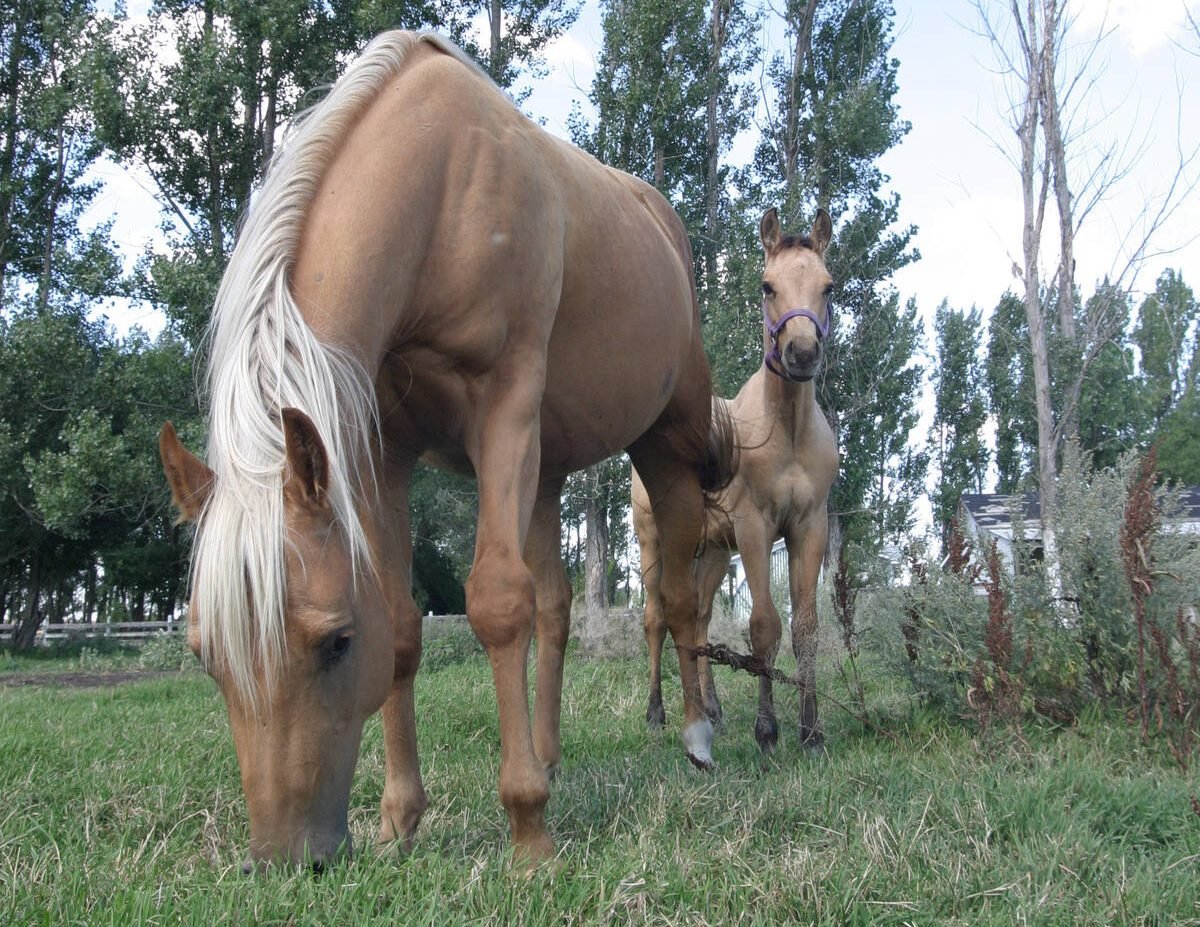Summer is a great time for a horse’s annual checkup.
I touched base with Dr. Tamara Quaschnick, a horse and cow veterinarian, to get her take on this routine appointment.
“I’m thrilled if I can see horses once a year on a non-urgent basis,” said Quaschnick, who owns Steadfast Veterinary Services in Hanna, Alta.
“There are so many instances where you only see them when there’s something wrong. It’s important to have at least one visit a year where we can just focus on base line things and consider the horse as a whole.”
Read Also

Growth plates are instrumental in shaping a horse’s life
Young horse training plans and workloads must match their skeletal development. Failing to plan around growth plates can create lifelong physical problems.
Start off on the right foot by letting your vet clinic know exactly what you need from the visit. Precision when you book the appointment will save everyone time and money.
If you have a particular concern, your vet can plan ahead, review the horse’s medical file, bring the right equipment and look up anything out of the ordinary. It will also help them schedule the approximate amount of time.
For example, if you would like Coggin’s tests to check for equine infectious anemia for your herd of 10 Overo paint horses, your vet needs enough forms and time to record their elaborate markings.
Other items to give your vet a heads up about include lameness and the potential for X-rays, blood testing and skin conditions including lumps and bumps.
It may be helpful to prepare a list of specific questions and concerns because there can be a lot going on during the appointment. Some people even use checklists, which is especially helpful for owners with several horses.
“It’s nice to have everything in a list so you can review it at the end of the appointment and make sure everything was covered,” Quaschnick said.
Veterinarians appreciate it when you take an active role in your horses’ health care by knowing their medical history.
Keeping your own records could be as simple as a notebook or sophisticated as a Smartphone app, where you can record the date of the appointment, type and brands of vaccines, location given, any reactions and other health information.
Ask for a copy of the medical record if you have a new horse or switch veterinary clinics.
Keep the lines of communication open by letting your veterinarian know if you’ve tried complementary treatments such as massage.
“It is good to know that you’ve seen these issues in your horse and that you’re seeking treatment for them because that can frame our discussion,” Quaschnick said.
Vaccinations and infection risk remain a key part of the annual check up. Your veterinarian will make vaccine recommendations based on your individual needs. Also, mention if you are travelling for shows or competitions because there may be specific health requirements.
Be sure to mention if your horse has experienced a reaction to previous vaccinations. Note the specific type and brand of vaccine that the horse reacted to, what happened and if it required treatment. Reactions can range from a sore neck to a full-blown anaphylactic reaction.
The large number of combination vaccines on the market can make it tricky to pinpoint exactly what component caused the reaction and may require trying single agent vaccines to figure it out.
Parasite control is another key topic of a check-up.
Gone are the days when veterinarians recommended blanket deworming and product rotation. In the age of parasite drug resistance, many vets recommend an intelligent approach to controlling parasites in horse herds. This includes assessing the risk for parasites based on the horse’s age and fecal egg counts to determine an appropriate and individualized deworming strategy.
A dental examination and possible float may be recommended at the same appointment.
Once the big day arrives, have all your horses caught and lightly groomed before appointment time. Pay particular attention to the lower legs if you are asking for a Coggin’s test because caked-on mud can obscure leg markings.
Minimize distractions by confining dogs and switching off your cellphone so everyone can focus on the appointment.
With some thoughtful preparation and organization, your annual horse checkup can be a breeze.














